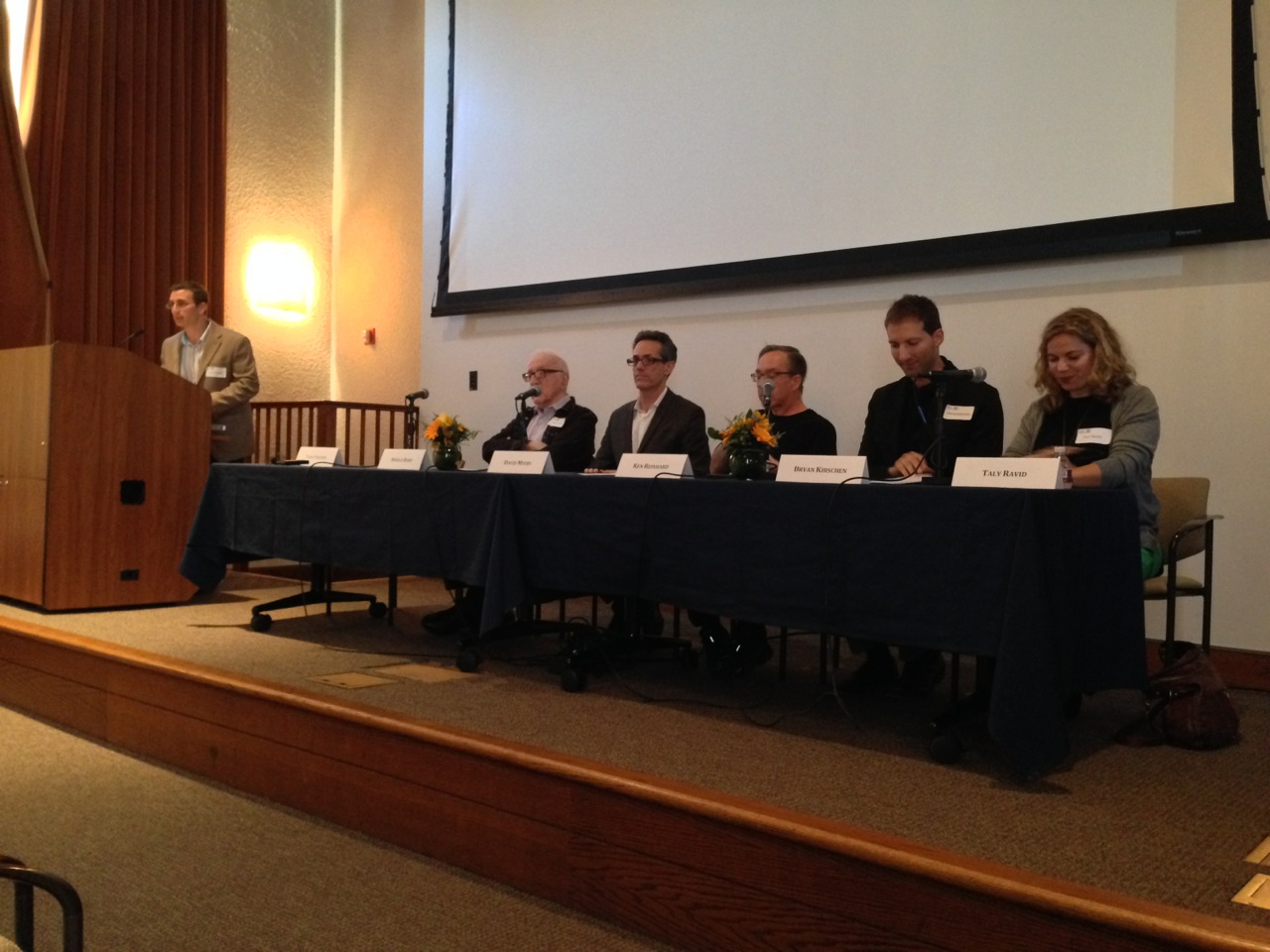If you couldn’t find Room 314 in Royce Hall, all you had to do was follow your nose. The aroma of meat and vegetable pastries, cooked vegetable dishes, and decadent desserts began somewhere around the offices of the Italian Department and led to the chattering crowd of professors, students, researchers, and general public celebrating the 20th anniversary of the founding of the Center for Jewish Studies at UCLA.
The birthday bash is held every year, although this year’s celebration was extended to include more presentations and commemorative speeches. It was open to the public, although reservations were requested. About 70 people were in attendance, many drifting in and out of the room as their interest in the speeches waxed and waned or the time grew late. Most were regulars and many knew each other by name.
The Center for Jewish Studies was established by Arnold Band in 1994 to facilitate formalized study of the history and culture of the Jewish people. Its roots are in the first courses on Jewish Studies (as differentiated from study of the Hebrew language) offered at UCLA in 1954 and the creation of the Jewish Studies undergraduate major in 1972. The interdepartmental field grew in size and scope with the acquisition of a Judaica library, which today is quite extensive and housed in the College Library and mainly in the Young Research Library. More than 2000 students (undergraduate and graduate) take courses in the center every year, and 200-plus have completed doctoral dissertations.
On Wednesday night after an overview of the Center’s history, a panel made up of past Center directors, affiliates and professors and moderated by current director Todd Presner, discussed its present and future. Arnold Band (director 1994-1996), David Myers (director 1996-2000, 2004-2010), Kenneth Reinhard (director 2000-2004), Bryan Kirschen (graduate student in the Department of Spanish and Portuguese) and Taly Ravid (graduate student in the Department of English) spoke about topics ranging from the relationship between a public university in Los Angeles and Jewish Studies to the ongoing issue of how to ensure the continuing relevance of the humanities. Presner described a growing concern that the humanities might become useless, as the world continues to develop technologically and focus on how to further shrink microchips into fewer millimeters. Since the perceived crisis in humanities is somewhat real, he asked, is there a way out for Jewish Studies? The panel seemed to think there was.
Responses varied from Band’s dismissal of the crisis as being inapplicable to the still-burgeoning field of Jewish Studies to Reinhard’s description of the lessons in communal engagement the Center could teach other departments and fields of study, to Ravid’s emphasis on interdisciplinary work with Jewish Studies. By far the most radical response, however, was Myers’ proposal to create an affiliated center for Jewish thought on policy deliberation. Such an institution would combine millennia-worth of Jewish philosophy and legal debate with current politics and events. For example, Talmudic debate on abortion and the status of a fetus could be taken into account in the ongoing power struggles involving abortion law in the US, and discussions of the legal status of a non-Jew living in Israel (under Jewish law) might be referenced in current issues of naturalization, citizenship, and the rights of illegal immigrants. Myers calls this “applied Jewish Studies” and sees it as something essential to the field’s very survival and continued relevance. Of course, there would be some challenges to surpass, Myers admits, as the functioning of such an institution would require the cooperation of willing politicians and policymakers. However, in several years’ time, UCLA students and faculty at the Center might find themselves engaging in philosophical debate and research with the Department of Political Science and the School of Public Affairs. Future US Presidents might appoint Rabbis and Jewish Studies doctorates to the Cabinet to apply Jewish wisdom to thorny contemporary problems.
The event concluded with the buffet catered by Hillel’s Judith Boteach, who runs The Shack’s kosher kitchen, as food for the stomach followed food for thought.

